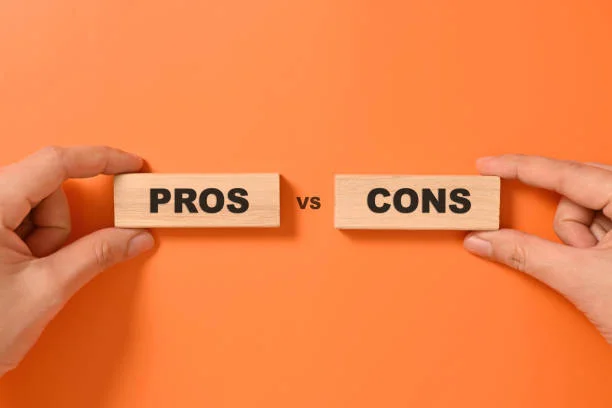A trust is a legal arrangement that allows you to transfer ownership of assets, such as your house, to a separate legal entity managed by a trustee for the benefit of specified beneficiaries. Trusts are commonly used in estate planning to manage assets, avoid probate, reduce taxes, and ensure property is distributed according to the grantor’s wishes.
You might wonder Can I put my house in a trust without a lawyer? The short answer is yes, it is possible to create a trust on your own. However, this approach has its advantages and disadvantages. This blog will help you understand the pros and cons of setting up a trust yourself, so you can decide whether to handle it on your own or seek professional legal advice.
Table Of Contents
What is a Trust and Why Put Your House in One?
A trust is a legal arrangement in which a grantor (the person establishing the trust) transfers ownership of assets to a trustee, who manages those assets for the benefit of designated beneficiaries. Trusts are widely used in estate planning to ensure assets are managed and distributed according to the grantor’s wishes while offering potential legal and financial benefits. Approximately 60% of Americans do not have a will or estate plan in place, highlighting an opportunity for increased awareness about trusts as an alternative estate planning tool.
Can You Put Your House in a Trust Without a Lawyer?

Yes, it is legally possible to set up a trust and place your house in it without hiring a lawyer. However, this process requires careful attention to detail, a clear understanding of your goals, and strict compliance with state-specific laws. Here’s how you can do it and what you should keep in mind.
The Process for Creating a Trust

If you choose to establish a trust without a lawyer, follow these steps:
- Research State Laws
Trust laws vary by state, so it’s crucial to familiarize yourself with the specific requirements in your jurisdiction. This includes understanding the necessary language, signing procedures, and whether the trust needs to be notarized or filed. - Choose the Type of Trust
Decide which type of trust suits your goals:- A revocable trust allows flexibility and control over the property during your lifetime.
- An irrevocable trust offers asset protection and potential tax benefits but requires relinquishing control.
- Use Online Trust Templates
Many websites offer customizable trust templates tailored to different states. These templates can guide you in drafting a legally valid trust document. Ensure the template is from a reputable source and compliant with your state’s laws. - Name the Trust and Parties Involved
- Assign a name to your trust (e.g., “Smith Family Trust”).
- Designate a trustee (yourself for a revocable trust or another person for an irrevocable trust).
- Identify the beneficiaries who will inherit the property.
- Transfer the Property to the Trust
To legally place your house in the trust, you must transfer ownership by preparing and signing a new deed. The deed must list the trust as the new owner of the property. This step may require notarization and filing with the county recorder’s office. - Sign and Notarize the Trust Document
Ensure all parties (grantor, trustee, and witnesses if required) sign the document. Many states require notarization to make the trust legally binding.
Why Put Your House in a Trust?
Placing your house in a trust can offer significant advantages in managing and protecting this valuable asset. Here are some key benefits:
- Avoiding Probate
Probate is the court-supervised process of distributing a deceased person’s estate. This process can be time-consuming, costly, and public. When a house is held in a trust, it typically bypasses probate, allowing beneficiaries to gain access to the property more quickly and privately. - Protecting Assets
Certain types of trusts can shield your house from creditors, lawsuits, or financial disputes. This is particularly relevant with irrevocable trusts, which separate the grantor from direct ownership of the property. - Simplifying Inheritance for Beneficiaries
A trust can streamline the process of transferring ownership of your house to your heirs. It clearly outlines who should inherit the property and under what conditions, reducing the potential for family disputes and confusion.
Common Types of Trusts
There are various types of trusts to suit different estate planning goals. Some of the most common include:
- Revocable Trusts
Also known as living trusts, these allow the grantor to maintain control of the assets during their lifetime and make changes or revoke the trust at any time. They are ideal for avoiding probate and simplifying inheritance but do not offer asset protection from creditors. - Irrevocable Trusts
Once established, these trusts generally cannot be changed or revoked. They provide strong asset protection and potential tax benefits, but the grantor relinquishes control over the property. - Specialized Trusts
Depending on your goals, you may consider other types of trusts, such as a Qualified Personal Residence Trust (QPRT) for reducing estate taxes or a Spendthrift Trust to protect beneficiaries from squandering the inheritance.
Pros of Setting Up a Trust Without a Lawyer

- Cost Savings
One of the most significant advantages of creating a trust on your own is the money saved on legal fees. Hiring an attorney to draft a trust can cost hundreds or even thousands of dollars, depending on the complexity of your estate. DIY trusts, using online tools or templates, are often available for a fraction of that cost, making them an attractive option for individuals with simpler estate planning needs. - Convenience
Setting up a trust on your own offers the flexibility to work at your own pace. Online templates and resources are available 24/7, allowing you to draft, review, and finalize the trust document whenever it suits you, without having to schedule appointments or coordinate with a lawyer. - Accessibility
A wide variety of resources are available to help you create a trust, ranging from free guides to low-cost, state-specific templates. These tools make it easier for anyone, regardless of legal expertise, to take control of their estate planning.
Cons of Setting Up a Trust Without a Lawyer
- Complexity
Legal jargon and the intricacies of trust law can be daunting for those unfamiliar with the process. Understanding the specific requirements, choosing the right type of trust, and ensuring it meets your goals can be overwhelming without professional guidance. - Risk of Errors
Mistakes in drafting the trust document or transferring property into the trust can render it invalid or ineffective. For example, failing to properly execute the trust according to state laws or incorrectly preparing the property deed can create significant legal issues for you and your beneficiaries. - Customization Issues
Online templates are often one-size-fits-all and may not adequately address unique circumstances, such as blended families, special needs beneficiaries, or complex financial arrangements. A lawyer can tailor the trust to meet specific needs, something generic templates might not achieve. - State-Specific Rules
Each state has its own laws governing trusts, including signing, notarization, and filing requirements. DIY trust creators must thoroughly research and adhere to these rules. Failing to comply with state-specific regulations can result in a trust that doesn’t hold up in court or fails to achieve its intended purpose.
Conclusion
Placing your house in a trust without a lawyer is a feasible option, especially for those with simple estates and the confidence to navigate legal documents. However, it’s not without risks. Errors in drafting, compliance issues, or failure to transfer the property correctly could lead to significant problems, potentially invalidating the trust or causing complications for your beneficiaries.
Before proceeding, carefully weigh your options. If your estate is straightforward and you’re comfortable using online resources, a DIY trust can save money and time. However, if your situation is more complex or you feel uncertain about any part of the process, seeking professional advice is a wise choice. A lawyer can ensure your trust is customized to meet your goals and compliant with all state-specific regulations.
FAQs
1. Can I set up a trust for my house on my own?
Yes, you can create a trust using online tools and templates, provided you comply with state laws and complete all necessary steps.
2. What are the benefits of placing my house in a trust?
Benefits include avoiding probate, protecting assets, and simplifying the inheritance process for your beneficiaries.
3. Do I need a lawyer to transfer my house into a trust?
While not mandatory, a lawyer can help ensure the deed transfer is properly executed and compliant with local regulations.
4. What are the risks of creating a trust without a lawyer?
The main risks include making errors in the trust document, failing to transfer property correctly, and overlooking state-specific requirements.
